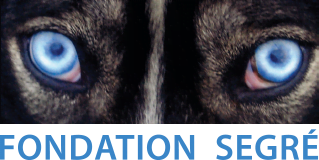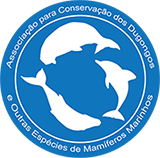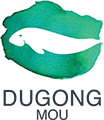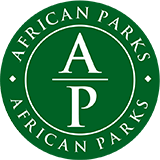This project empowers coastal communities to take the lead in protecting dugongs and seagrass
This is achieved by introducing innovative conservation tools and developing sustainable livelihoods that support efforts to conserve this critically important population and ecosystem in Bazaruto Archipelago, the last remaining stronghold for dugongs in the western Indian Ocean.

Building Local Capacity for Sustainable Livelihoods and Community-based Conservation of Dugongs and Seagrass in Bazaruto Archipelago Region, Mozambique.
This project, funded by Fondation Segré, replicates the work delivered in Southeast Asia under the Seagrass Ecosystem Services Project, by applying our key strategic framework and empowering coastal communities to take the lead on dugong and seagrass conservation.
€ 300,000
(2021 – 2024)
Project Partners
Association for Conservation and Protection of Dugongs (Dugongos)
 Dugongos promotes the conservation and protection of dugongs and seagrass in the western Indian Ocean through dugong population tracking, seagrass habitat assessments and conservation awareness. The organisation was established in 2012 and has taken part in regional initiatives in partnership with Western Indian Ocean Marine Science Association (WIOMSA) and the Dugong and Seagrass Conservation Project (2015-2019). As a result of their ongoing work, Dugugongos has identified dugong hotspots in the East Africa region and assessed the extent and diversity of seagrass beds. They have also raised awareness of the importance of dugongs and seagrass, highlighting the important role dugongs play in the spread, dynamics, diversity and survivability of seagrass
Dugongos promotes the conservation and protection of dugongs and seagrass in the western Indian Ocean through dugong population tracking, seagrass habitat assessments and conservation awareness. The organisation was established in 2012 and has taken part in regional initiatives in partnership with Western Indian Ocean Marine Science Association (WIOMSA) and the Dugong and Seagrass Conservation Project (2015-2019). As a result of their ongoing work, Dugugongos has identified dugong hotspots in the East Africa region and assessed the extent and diversity of seagrass beds. They have also raised awareness of the importance of dugongs and seagrass, highlighting the important role dugongs play in the spread, dynamics, diversity and survivability of seagrass
CMS Dugong MoU Secretariat
 The Memorandum of Understanding on the Conservation and Management of Dugongs and their Habitats throughout their Range (CMS Dugong MoU) is an international agreement that aims to promote internationally coordinated actions to ensure the long-term survival of dugongs and their seagrass habitats throughout their extensive range. The CMS Dugong MoU entered into effect on 31 October 2007 in Abu Dhabi, United Arab Emirates and has since been signed by 27 countries.
The Memorandum of Understanding on the Conservation and Management of Dugongs and their Habitats throughout their Range (CMS Dugong MoU) is an international agreement that aims to promote internationally coordinated actions to ensure the long-term survival of dugongs and their seagrass habitats throughout their extensive range. The CMS Dugong MoU entered into effect on 31 October 2007 in Abu Dhabi, United Arab Emirates and has since been signed by 27 countries.
As a project partner, the CMS Dugong MoU Secretariat will provide technical and project management support.
Click here to visit website.
African Parks
 African Parks is a non-profit conservation organisation that currently manages 18 national parks and protected areas across 11 countries in Sub-Saharan Africa, in partnership with governments and local communities. African Parks manages the Bazaruto Archipelago National Park (BANP) in partnership with the Government of Mozambique.
African Parks is a non-profit conservation organisation that currently manages 18 national parks and protected areas across 11 countries in Sub-Saharan Africa, in partnership with governments and local communities. African Parks manages the Bazaruto Archipelago National Park (BANP) in partnership with the Government of Mozambique.
As a project partner, African Parks coordinates with BANP project team to ensure harmonization and synergy, as well as providing logistical support.
Click here to visit website.
Technical Partners
Eduardo Mondlane University
The University has extensive regional knowledge and expertise in studying the seagrass beds of Mozambique. Research aimed at mapping the distribution of seagrass in Mozambique has been ongoing for the past 30 years.
As a project partner, Eduardo Mondlane University provides regional expertise and technical advice, and supports relationships with local stakeholders.
Seagrass-Watch
Based at James Cook University (Queensland, Australia) under Len McKenzie, Seagrass-Watch is a global seagrass research and education programme that employs a citizen science approach. With 20 years’ experience, Seagrass-Watch is a world-class leader in seagrass research, mapping and monitoring. To date, the Seagrass-Watch methodology is applied at over 408 sites in 21 countries, and an additional five countries are at resource identification stage.
As a project partner, Seagrass-Watch provides technical support and capacity building in delivering seagrass mapping and monitoring at the project sites.
Project Seagrass
Known for their leading research and conservation work on seagrass throughout the Indo-Pacific region, Project Seagrass, led by Dr Richard Unsworth, has over 15 years’ experience assessing and understanding seagrass ecosystem services.
As a project partner, Project Seagrass provides highly specialized expertise and training on delivering seagrass ecosystem service assessments.
Murdoch University – Aquatic Megafauna Research Unit
The Murdoch University Aquatic Megafauna Research Unit has unparalleled knowledge and expertise on the use of unmanned aerial surveys (UAVs) for studying marine mammals, including monitoring the presence, distribution, relative abundance and habitat use of dugongs in relation to seagrass meadows. Dr Amanda Hodgson and Dr Christophe Cleguer are the only researchers in Australia with experience using UAVs for dugong aerial monitoring surveys.
As a project partner, Murdoch University provides support to local researchers undertaking marine megafauna UAV surveys.
Click here to visit website.
Introducing innovative and participatory methods for dugong and seagrass research.
The project applies research methods, such as the Dugong Catch and ByCatch Questionnaire, Seagrass-Watch and drone surveys, that coastal communities can deploy to identify key areas for dugong and seagrass conservation. The results of these assessments are then used to inform coastal communities and national governments during the next stages of the project.
Read moreCreating more favourable policy.
Building on the data collected and the assessments carried out in the first phase, the project engages coastal communities, local authorities, and other decision-makers in developing local, regional and national policies for the conservation and management of dugongs and seagrass.
Read moreDiversifying livelihoods by developing community-led business enterprises.
The project builds community resilience and reduces reliance on marine resources through a range of innovative business models that directly contribute to a community fund supporting dugong and seagrass conservation.
Read moreRaising the profile of dugongs and seagrass through storytelling and sharing results.
The project uses participatory media as a tool for coastal communities to share stories and change narratives on dugong and seagrass conservation at the local and national level. The project uses a diverse suite of communication tools to raise the profile of dugongs and seagrass and improve awareness and understanding of the importance of their conservation.
Read more